You may not know it, but there’s a world-wide war on whores. And George W. Bush is leading the forces, just like he is in Iraq, where the death toll mounts daily. All over the world, he has tied United States financial support to his agenda of making prostitution a crime, with willing sex workers and the clients criminals. I found this out recently at the European Conference 2005: Sex Work, Human Rights, Labor & Migration in Brussels.
 For years there’s been a raging debate between abolitionists who want to make all exchange of sex for money (whether voluntary or not) illegal; and sex workers who view the willing exchange of sex and money as a work issue, not a moral issue. The abolitionists, many of whom have never had sex for money, often contend that any exchange of sex for money is slavery.
For years there’s been a raging debate between abolitionists who want to make all exchange of sex for money (whether voluntary or not) illegal; and sex workers who view the willing exchange of sex and money as a work issue, not a moral issue. The abolitionists, many of whom have never had sex for money, often contend that any exchange of sex for money is slavery.
The sex workers, all of whom have exchanged sex for money, are adamant that they should be able to make money in the sex business if that is their choice. And they insist that they should be able to do it in safe, sanitary conditions, with the same rights as any other worker to ply their trade.
Abolitionists have often used the trafficking issue (the international buying and selling of sex slaves) to cloud the voluntary exchange of sex for money. Many claim that if sex work is decriminalized, trafficking will flourish. However, the fact is that in America, sex work is illegal, and there is much trafficking. In the Netherlands, sex work is legal, and there is much trafficking. Furthermore it is clear that by focusing so much energy on criminalizing willing clients and buyers in the sex business, these resources cannot be used to fight real sexual slavery.
Traditionally people in the sex business have not had a voice in how we are treated. We are jailed, deported, beaten, silenced. Academics, social workers, lawmakers and do-gooders have spoken for us. And we’re tired of it. That’s one reason this conference was organized: so sex workers can speak for ourselves about the deadly serious issues that are at the core of the debate about sex for money.
Here’s what happened to me at this historic gathering. On Thursday October 14th I arrived sleep deprived at the Mercure Royal Crown Hotel in Brussels, Belgium for the. Excited, thrilled, yet terrified that I would be shunned and ostracized for being an ugly American stupid white breeder man. This is what it’s now like for an American abroad. Even as I arrived, my fears were quelled as I was greeted sweetly and immediately put me to work assembling documents. I was quite pleased to be put to work, as I come from a long line of beasts of burden, and as an ex-whore, I live to please.
As I stuffed manifestos into whore-red folders, I heard my old friend Scarlot Harlot downstairs practicing a speech in Russian. Apparently “bitch” is “bitch” all over the world. Why did I travel 6,000 miles to be here? “Connect. Celebrate. Challenge.” That’s what the folder said. Challenge the world’s perception of sex workers, prostitutes, whores. Attitudes, laws, policies, rights to work safely and move freely. Connect with my European sex worker friendly brothers and sisters. Celebrate good times, come on!
In the conference room, 75 or so current and former sex workers and allies congregated, mingled and chilled. Art hung on the walls: rentboy photos eating breakfast; line drawings of whore heroes; transgender warriors and brave streetwalkers. And in the corner was Scarlot Harlot’s Whore Store. For the whore in all of us.
My earlier trepidation now seemed ridiculous. I communed with sex workers from Russia to Washington. Suddenly I was face-to-face with the one and only Margo St. James, legendary icon activist and all-around hot mama. I have, of course, heard stories about her for years. Even performed at benefits for St. James Infirmary and Coyote (Call Off Your Old Tired Ethics), sex worker institutions she co-founded that provide help with medical, mental, professional, legal, financial and compassion needs in my San Francisco. It’s slightly odd to finally meet someone you’ve admired for so long. And such a relief when she is so smart, funny, down-to-earth and mad sexy. We talked about SF’s history as the sexual capital of America, the Hooker’s Ball, Dizzy Gillespie, cokeheaded lawyers and crooked-ass cops. I thought how odd it was to travel to Brussels to meet a legend from my own hometown.
First night a big group of us went out to dinner. Picture the scene: 17 sex workers dropping in on a nice unsuspecting Brussels restaurant at 10pm Friday night. A Scottish lap-dancer sat next to me. Apparently the women in Scotland pay a deposit before their dance shift, are required to do a couple of stints on stage, then do their lapdancing in a booth, which is carefully monitored by a closed-circuit camera. No touching policy is strictly enforced. So there is a real sense of safety in the workplace. Juxtapose this with SF, where I recently spoke to a lap-dancer who told me the woman have to pay to work, and if they don’t make the $300 they’re charged for a night, they lose their money, goodbye, sayanora, tought luck, baby! And in the booths she descibed, which woman are often forced into, the door is locked, and they are left unprotected. Coersion, rape and forced sex often ensue. And the cops don’t care, cuz they’re often the customers. Again I am embarrassed to be an American.
On the other side of me was an English sex worker man I’d been corresponding with electronically. Part of the joy of this conference was putting faces to e-mails. He was charming in a way only the English can charm, and whip-smart, with a fascinating story: from evangelic angelic English school/choir boy to wildly successful hustler.
Finally I dragged my raggedy ass to bed at 2am and slept until 5am, when my brain popped open and started gyrating wildly around the room. Sadly I was unable to find any way to stop it. Next thing I knew it was 9am, and I crawled like a dazed Kafka cockroach down to the conference room.
An absolutely radiant sex worker woman living now in the UK was decked out in a sexy boustier type deal, with a big feather headress flapping exotically on her head. She instructed us to blow up the red balloon on our seat, write something on it, bat it around the room, grab another, and write something on it. It was grand fun. And a beautiful sight, watching 99 luft ballons flying around the room, with all those whores batting them about.
Favorite things I saw on a red balloon: “Money can’t buy you happiness, but it can rent some for awhile,” and “Practice random acts of kindness.”
Then they were popped:
BOOM! BAM! BANG!
We were then addressed by the committee who put the whole conference together. What an enormous undertaking: getting everyone here, translating everything into four languages, picking a clear agenda everyone could agree on. The most basic goals were laid out:
· Creating a network for sex workers and allies to share information easily and instantly
· Getting sex work addressed as a labor issue, and working to get sex workers rights to free movement and safe work, with dignity and respect
· Drafting and ratifying a manifesto and a declaration to state our needs and desires
It was stressed that people who want to make money from sex of their own free will should have the same human rights as everyone else: protection from harm and harassment, sanitary working conditions, a living wage, freedom of movement. But often when sex work is legalized, prostitutes are forced to register, often with their home addresses. They are given mandatory health tests, and often this information is made public, causing stigma and sometimes violence to be heaped on the worker. Many times they are taxed outrageously, and can have their children taken from them with no recourse. Of course where sex work is prohibited, the workers have no rights at all, and can be abused by clients, employers, and the police, which sadly happens all too often. To view the issue as a labor/human rights/migration issue seemed a good start in improving the world for people who want to work in the sex industry.
In the afternoon I attended a Network Workshop. The idea is to create an international network where information of all kinds can be exchanged instantly and freely. The problems inherent are enormous and obvious: no money, no existing infrastructure, too many languages, every country with different customs and laws, so many workers underground and inaccessible, shadow players in a dark dangerous game. A sex worker who lives in French told a horror story of an African woman working in Paris in deplorable conditions. When she complained to the government, they assured her they would help. Instead they used the information to swoop down on the area and make massive arrests, deporting many many women who were working there without documentation. And nothing could be done. The French sex worker reflected that if there had been a network in place, perhaps the sex workers could have been warned.
Next was a media workshop, which I had agreed to help facilitate. It was distressingly depressing how many of my fellow sex workers had media whore horror stories. One transgendered sex worker living in Norway told about being interviewed extensively, then getting quoted in the paper in a tiny box with a huge unflattering picture above and a caption that read: “WHORE REFUSES TO PAY TAXES!” Time and again the media portays us as sadsack immoral slut dregs-of-society losers, or sex freaks in miniskirts bending into car windows. A general theme emerged: Control the interview, plan and rehearse your message, and deliver it kindly, nicely and relentlessly. And as with all whore work, it if feels weird or bad, JUST SAY NO!
On to the Manifesto. A statement of needs and desires by sex workers themselves, not policy makers, social workers, or deluded do-gooders who have no idea what it’s like to actually do the the work. The Manifesto addresses everything from working conditions, to migration, to labor practices, to securing basic human rights, respect and protection. So many of these conferences devolve into pointless theorizing and painful in-fighting. But here is a real document with real substance written by real sex workers.
Another joy of this conference: the conversations you would never ever have anywhere else. After we rehearsed for the show we were going to put on, a new stripper friend said, “Please don’t tell anyone about the buttplug, I want it to be a surprise.” I assured her that no word of the buttplug would pass my lips. And I was true to my word.
At the group meeting Sunday morning, a sex work expert reported that new German legislation doesn’t decriminalize sex work, but now it is tolerated. Sex workers are expected to sign contracts if they work in houses. But there is much mistrust, and many workers don’t want to sign them. Part of the problem is that the workers don’t know about changes in the law, so they’re in the dark about their rights. Legally, it is not against the law to run a house of prostitution in a residential neighborhood, but because of ignorance and stigmatization, many houses are being closed down. And in every sector their are small variations in law. Apparently in Germany, politicians and government officials are so ignorant about how the sex business works that they tax sex workers when they aren’t even employees. A pleasure tax is also levied on sex workers, who are not allowed to deduct legitimate expenses. So they often have outrageous tax bills. And with the change in law also comes a crackdown on migrant workers, who are deported, even though many have nowhere to go, and face horror stories when they are dumped back in the home lands. On the positive side, the law is a start towards legitimizing sex work.
Laura Agustin’s presentation on migration and trafficking followed. Apparently there’s a great discrepancy between what is actually happening in the world, and the hysteria that is presented by abolitionists and the media. Yes, of course there are slaves of all kind being trafficked in the world, but all too often the reality of migrants willingly exchanging sex for money is ignored, and the worker suffers for it. This makes it all the more difficult to track down real traffickers who are using humans as slaves. Only when governments acknowledge and respect the right to travel and trade sex for money will migrant sex workers get the rights and protection they desperately need and deserve.
An Italian sex work legend, who for many years has been studying human and sexual rights, as well as discrimination and persecution among woman and the transgendered. Sex workers, she said, are perceived as victims, and stripped of all rights and abilities to determine their own fate. Sex workers and migrants are the subject of racism, violence and abuse. The perpetrators are not pursued or punished. The message was: This must end.
A sex worker expert who now live in Swedish presented the new Swedish model of controlling sex work. Apparently, for better or worse, the Swedes believe that the whole world should adopt their social policies, so they are madly going around trying to get every country under the sun to run sex work the way they do. The only problem is: What they do doesn’t work. Their idea is to arrest and prosecute the client. Which is better than arresting and prosecuting the women certainly, but the point is, why are they arresting willing buyers or sellers at all? The feminist-driven Swedish government argues that criminalization will empower women, making them less susceptible to being talked into the business. And their theory is that trafficking will be stopped. However, the reality is much different. Sex workers can no longer afford to be choosey about picking clients, since the clients are fewer, scared and edgy. So often times only the violent, extreme buyers are left. And if something does happen, the clients, who used to be able to help police, now no longer cooperate for fear of being arrested themselves. Undocumented workers are shipped out. Police clandestinely film sex workers, trying to collect evidence against buyers. Sex workers are now loathe to carry condoms, which can be used as evidence of having sex for money. And in Sweden, the government will not listen to the sex workers themselves. But the Swedish expert said he is bound and determined to “stop the virus from spreading” and urged us to help stamp out this terrible policy, which tramples all over human rights of sex workers.
Gail Pheterson and Margo St. James then gave a presentation, complete with pictures and text, about the history of the sex worker rights movement. They have had a wonderful partnership as academic/sex worker, and this reflected in their beautiful give-and-take rapport. They said that from the beginning they didn’t back away from words used to denigrate prostitutes, which is why they called the inaugural event, The First World Whore Conference. This was in 1985-86. Twenty years ago. From the beginning, prostitute rights and women’s rights seemed to them intrinsically linked, and they’ve been working (with varying degrees of success) for years to get feminists to understand this, and have sympathetic support for sex workers. “We are all for rights of sex workers and against violence, exploitation and slavery.” Gail and Margo did a very interesting thing from the beginning: they dressed up civilian allies as whores so that no one could tell the difference. We are not who you think we are. We are not freakish amoral monsters. We are brothers and sisters and mothers and fathers. We live next door, up the street, and down the hall. Looking at Margo and Gail, it was impossible to tell who was the academic and who was the ex-whore. They quoted Norma Jean Almodavar: “There’s a difference between politicians and prostitutes. There are some things prostitutes won’t do for money.” I laughed. We all laughed.
Ana Lopes and George Martin talked about starting a sex woker union in the UK. Ana got a job in the sex industry, liked the work, but was frustrated that she was stigmatized, had no labor rights, and was treated unfairly, with no recourse. So she and fellow sex workers met in her apartment, with no money, no resources, and formed the International Union of Sex Workers. They put up a website, recruited more members, and went about making themselves into a valid union. After being rebuffed by many many organizations, they contacted the George Martin and the GMB. They found they had much common ground, and joined forces. They wanted to establish sex work as legitimate labor, thus helping with training, individual benefits, legal representation and rights, as well as better working conditions. And now they have actually made a recognized union. Forcing people to see sex work as a labor issue as opposed to a moral issue. And in giving invisible sex workers a face and a structure to be seen and heard. Ana and Martin were inspirational indeed. Sex Workers of the World Unite!
Sunday night was the party/performance, at a nightclub in Brussels. The place was packed to the rafters with sex workers and allies in all their feathery finery. Wigs, slits, tits, stilleto heels, big hair, short skirts, silk, leather and lace. By the time the show started the atmosphere was electric, like being in a cloud just before a lightning storm. After two beautiful poems by two beautiful French sex workers about activist warrior Gristeledes, Scarlot Harlot, looking like a cross between Mae West, the Statue of Liberty, and a Madame at a Brothel in Heaven, brought the house down with her unique blend of vaudevillian sloganeering.
Stop the Wars On Whores!!!
Outlaw Poverty Not Prostitutes!!!
Keep the Government Out of My Underpants!!!
Solitair has legs longer than I am, a black river of hair running down her impossibly long back, huge spotlight eyes that shine on high beam, and when she paraded onto the stage to the tune of “I Like the Way You Move” in a tiny purple see-through teddy, a hot shiver ran through the room. Lean lithe and lovely she played the crowd like it was a violin and she was Itzak Perlman in a purple teddy. And when she bent over and moved her G-string to reveal the butt plug, I was gratified that I had not revealed her secret, because the stunned pindrop silence, full of gaping mouths, stolen breath and bugged-out eyes, was priceless. To shock this crowd took some doing, but Solitair did it in spades.
I was next, and as I looked out at all those beaming sex workers faces from all over the world: the rentboys and ladyboys, the whores and the hustlers, the disenfranchised and the reviled, the hated and the desired, the objects of revulsion and lust, I was overcome by these people, who had all traveled many miles to be here, to try in some ridiculous way to make the world more fair and humane and safe.
I have done my show, or bits of it, almost a hundred times, on three continents. This was the only time I have been translated on the spot into Russian and French. Strange and amazing to say a line, then wait and hear my words in Russian. Then French. I had been a little worried that it would be too long and too weird. But for me it accentuated how we were doing something global, and yet incredibly personal. In my show I portray a client who was a tantric sex expert. My piece climaxes when she has the mother of all climaxes. I’ve always said that Orgasm is the ultimate international language, and this proved true on that Sunday night in Brussels. It felt like we all came together in a celebration of sex work and being human.
Gypsy Charms, my new Scottish stripper friend, had asked me to play a client getting a lap-dance from her. After the dance I was to yell at her, growling gruffly about what bad her body was. To me this illustrated a subtle part of sex work that I felt over and over when I was in the business, that no one had really discussed at the conference. How clients inflict their sexual pain on the sex worker. How as a whore I absorbed so much sexual illness from my clients. As a race we seem to suffer so much sexually, and sex workers are a well into which the world dumps its sex misery. In the piece, I was told to reach up and touch her, which is strictly forbidden. When I did it, she reached back and slapped me. The crowd reacted audibly, happy to see an abusive client get some of his own back. I thought of the men standing outside the booths in Amsterdam, drunk and screaming horrible degrading things at the women behind the glass, laughing like sadistic barbarians.
After the show an amazing DJ ripped some crazy mad tunes, with all manner of Afro/Latino/Eurotrashing rhythms thrown into the pot to create a tasty stew. Boys danced with boys. Girls danced with girls. Boys danced with girls. Girls danced with boys. Trannies danced with everybody. It was a slamming jamming euphoric release. A celebration.
Monday morning, blurry-eyed but bushy-tailed we loaded into buses and headed for the European Parliament. By this time I was so sleep deprived I felt sure that if my head weren’t tethered to my body, it would float away like a red balloon. As we approached the huge gleaming glass and metal structure of the European Parliament, its modern majesty made it feel like we were about to enter a center of money and influence. We had to get individuals badges and go through the metal detectors, adding to the effect that something terribly official, and potentially dangerous, was happening here. It was a fabulous contrast: all of us queer birds dressed like bureaucrats and politicians rubbing elbows with all the straight-laced button-down bureaucrats and politicians. The room where our meeting took place looked just like you see it on TV. A table with microphones on a platform in front of many long curving tables with microphones, going back 30 deep, with chairs for about 250 people. Around the perimeter, behind glass partitions, sat the translators from a dozen or so countries. Nice gig, I thought, sit around and wait for somebody to speak in your language, hope they’re not too longwinded, then hang out in the European Parliament.
Entering this room was surreal. Made everything seem more real and possible, because after all, here we were, in the very seat of social power, where laws are changed, compromises are hammered out, and policy is made. An official from the Green Party, which sponsored us, spoke about how much we have in common. We both want to stop violence and abuse, and get rights in place for all sex workers. The funny thing is, you could not have picked this Green Party politico out of a line-up of sex workers.
An Italian member of the European Parliament showed up. He was attentive, energetic and seemed like quite a sharp fellow. He talked about putting the sex work struggle in the broader historical context of the struggle for human rights by any underrepresented, oppressed, reviled, stigmatized and beaten down group. The Italian Parliament said he was going to take our Declaration to other politicians so they can study it, and make changes accordingly. He said he was on a committee that was responsible for spreading democracy and human rights all over Europe, and that he was going to push our agenda of civil rights and the fight against repressive punitive laws and regulations. Most importantly, he thought that making sex work seen as a profession would be a huge step. He suggested we hook up with other organizations to build our power base, and to find specific violations to draw attention to the larger issues.
Then he did something amazing. He actually signed our Declaration. Right there in front of all of us. Out in the open. In the European Parliament. When our Chairperson asked him, he said he would sigh it, “Very happily.”
When ten basic demands were read by sashed sex workers, a chill went through me, and a feeling of triumph spread through the room. Stop criminalization, prejudice, violence, ignorance, cruelty and abuse, to ensure that people can work and move free and easy, proudly and with dignity.
Afterwards I thought what we really should do is film our members having sex with all the major leaders of Parliament, then blackmail them into giving us what we need. Hey, by whatever means necessary.
WARNING: If you ever eat in the European Parliament, DO NOT have the salad. The green beans were wilted, the corn tasteless, and the shredded carrots a disaster.
So now we had to load into a bus and go to the Street Demonstration. If you’ve ever tried to move 150 sex workers through the European Parliament you know how difficult that can be. Somehow we succeeded. Then suddenly there we were on the steps of the Brussels Stock Exchange. I thought ruefully of all the bankers who rent us, then revile us.
We were all given red umbrellas, and as we assembled with them on the steps, it was a beautiful sight, like a field of blooming poppies with sex worker flowers growing under them. A huge banner read:
SEX WORKER RIGHTS = HUMAN RIGHTS!!!
Instantly it was a mob scene, as onlookers gawked and gaped, glued to the spectacle of the whistle-blowing whores dancing and chanting: “VOUS COUCHEZ AVEC NOUS, VOUS VOTEZ CONTRA NOUS!!!” You sleep with us, you vote against us!!!
Journalists hungrily buzzed about with notepads, microphones, movie and still camera, hunting for the nectar of the right angle to make the news.
Suddenly there were sirens, and the police showed up. My first impulse as an American was that they were going to arrest us. Great! I thought, this is the best thing that could possibly happen. I saw us on the front pages of the London, New York, Los Angeles Times, on the BBC, CNN, Al Jazeera:
150 SEX WORKERS ARRESTED IN BRUSSLES!!!
Alas, sadly, they were only there to keep the peace. After about 45 minutes, we took off through the streets of Brussels, a police car clearing the road for us. It was a joyous celebration, and a challenge to the public: we’re here, we’re not who you think we are, and we’re not going away. Globally and locally. As we moved through the streets of Brussels singing and chanting with our red umbrellas and our banners, we were cheered and waved at by walkers, drivers and passersby. I also heard that a couple of Belgians saw us and said, “They should all be killed.” They should all be killed. They should all be killed. We passed a group of boys, 8-10 year olds, on bicycles. They started cheering and shouting sweetly with boyish enthusiasm, staying with us for quite a while, having a fine old time. I smiled as I thought that maybe when they grow up they’ll have an image of sex workers as fun, smart and political, instead of uneducated, drug addicted wretches of society.
On the march, one of the member of our contingency was passing out cards for our organization. She gave one to an onlooker, who looked at the card, then looked at us, and asked what the card said. Our member translated: “These are sex workers.” Onlooker looked at the card, looked at us, and asked, “What’s a sex worker?” Our member explained, “People who work in the sex business, like prostitutes and strippers.” Onlooker’s eyes went wide: “Ï am a stripper and a prostitute. And and transsexual. May I join you?” Our member said we would love to have her. She introduced Onlooker to one of our own transsexual sex workers, and they walked arm-in-arm through the streets, telling each other their life stories.
Yes, of course, there is much to do, the situation is dire, but I for one, left excited, encouraged and inspired. From the streets of Brussels to the European Parliament, our voices are being heard.
TOP TEN LIST FROM THE EUROPEAN CONFREENCE 2005
1. European Parliament member signs official sex worker demand document
2. Whore Manifesto created and ratified
3. Margo St. James and Gail Pheterson stroll us down hooker activist Memory Lane
4. 10 sex workers read our needs in European Parliament
5. Hearing whore stories from around the world
6. Demonstrating on the steps of the Stock Exchange then dancing in the streets
7. Meeting sex workers from Greece, Italy, Sweden, Denmark, Finland, Russia, Scotland, England, Ireland, Spain, Portugal, Holland, Belgium, Germany, and God knows where else
8. UK strippers
9. Sharing a room with tantric massage expert
10. Getting my ass squeezed by a lesbian, a gay man, a straight man, a straight woman, and a transsexual all in one day
As an added bonus, I have included a list of things I think every activist should know. Enjoy!
10 COMMANDMENTS OF ACTIVISM
1. If thou marcheth in the streets, weareth comfortable shoes
2. Talketh not for more than three minutes if thou hast nothing to say
3. Putteth the needs of the group before thine own
4. Forgeth not thine business cards
5. Getteth contact information from everyone thou meeteth
6. Eateth apples instead of candy
7. If thou hast a roommate, tryeth not to snoreth
8. Listeneth more than thou talketh
9. Findeth solutions instead of bitchething about how bad everything is
10. Smelleth good
David Henry Sterry
To view pictures: http://www.espacep.be/
Here is the Manifesto:
SEX WORKERS IN EUROPE
MANIFESTO
We come from many different countries and many different backgrounds, but we have discovered that we face many of same problems in our work and in our lives.
Within this document we explore the current inequalities and injustices within our lives and the sex industry; question their origin; confront and challenge them and put forward our vision of changes that are needed to create a more equitable society in which sex workers, their rights and labour are acknowledged and valued.
This manifesto was elaborated and endorsed by 120 sex workers from 26 countries at the European Conference on Sex Work, Human Rights, Labour and Migration 15 – 17 October 2005, Brussels, Belgium.
BEYOND TOLERANCE AND COMPASSION
FOR THE RECOGNITION OF RIGHTS
We live in a society where services are bought and sold. Sex work is one of these services. Providing sexual services should not be criminalised.
Sacrificing sex workers for religious or sexual morals is unacceptable. All people have the right to hold their own personal religious and sexual morals, but such morals should not be imposed on any individual or determine any political decision.
We wish to see a society in which sex workers are not denied social power.
We condemn the hypocrisy within our societies where our services are used but our profession or businesses are made illegal. This legislation results in abuse and lack of control over our work and lives.
We oppose the criminalisation of sex workers, their partners, clients, managers, and everyone else working in sex work. Such criminalisation denies sex workers of equal protection of the law.
Migration plays an important role in meeting the demands of the labour market. We demand our governments acknowledge and apply fundamental human, labour and civil rights for migrants.
The right to be free from discrimination
We demand the end of discrimination and abuse of power by the police and other public authorities. Offering sexual services is not an invitation to any kind of violence. The lack of credibility of sex workers must end.
We demand that crimes against us and our testimonies are taken seriously by the justice system. Sex workers should, to the same extent as anyone else, be presumed innocent until guilt is proven.
Defamation of sex workers incites discrimination and hatred. We demand that sex workers be protected by anti-discrimination legislation.
The right to our bodies
Sex work is by definition consensual sex. Non consensual sex is not sex work; it is sexual violence or slavery.
We demand our right as human beings to use our bodies in any way we do not find harmful; including the right to establish consensual sexual relations, no matter the gender or ethnicity of our partners; regardless of whether they are paying or not.
The right to be heard
We assert our right to participate in public forums and policy debates where our working and living conditions are being discussed and determined.
We demand our voices are heard, listened to and respected. Our experiences are diverse, but all are valid, and we condemn those who steal our voice and say that we do not have the capacity to make decisions or articulate our needs.
The right to associate and gather
We assert our right to form and join professional associations and unions.
We assert our right to demonstrate publicly.
We demand the right to form business partnerships, both formal and informal, and to participate in social projects.
The right to mobility
We assert our right to be in all public spaces.
We assert the right of all persons to move within and between countries for personal and financial reasons, including seeking gainful employment and residence in the area of their choice.
The trafficking discourse obscures the issues of migrants’ rights. Such a simplistic approach to such a complex issue reinforces the discrimination, violence and exploitation against migrants, sex workers and migrant sex workers in particular.
Violence, coercion and exploitation related to migration and sex work must be understood and tackled within a framework of recognising the worth and fundamental rights of migrants.
Restrictive migration legislation and anti-prostitution policies must be identified as contributing factors to the violation of migrants’ rights.
Forced labour and slavery-like practices are possible in many trades. But where trades are legal and the labour of its workers recognised, it is more possible to denounce and put an end to the violations of rights and prevent abuse.
We demand our governments prioritise and protect the human rights of victims of forced labour and slavery-like practices, regardless of how they arrived in their situation and regardless of their ability or willingness to cooperate or testify in criminal justice proceedings.
We call upon our governments to give asylum to victims of forced labour and slavery-like practices, and to provide support to their families and friends. Failure to do so perpetuates their exploitation and further violates their fundamental human rights.
Abuse in sex work
Abuse happens in sex work, but does not define sex work.
Any discourse that defines sex work as violence is a simplistic approach that denies our diversity and experience and reduces us to helpless victims. It undermines our autonomy and right to self-determination.
Restrictive legislation contributes to discrimination, stigma and abuse of sex workers.
We demand our governments decriminalise sex work and end legislation that discriminates against us and stigmatises us. We demand the right to report abuses against us without risking prosecution.
Granting rights for sex workers would allow them to report infringements of their human rights.
We demand protection from those who threaten us and our families for exposing them.
We demand methods that allow us to remain anonymous when reporting grievances and crimes against us.
Abuse of young people in sex work
It is essential that education focuses on empowering young people to have sexual autonomy. We demand that support, services and outreach be provided to young people to give them real choice and the possibilities of alternatives.
Young people should have a voice in legislation and policies that affect them.
OUR LIVES
Being a sex worker
Society imposes an ‘identity’ and ‘social role’ on sex workers that goes beyond the recognition that we use our bodies and minds as an economic individual resource to earn money.
The ‘identity’ and ‘social role’ imposed on us defines us as intrinsically unworthy and a threat to moral, public and social order; labelling us sinners, criminals, or victims – stigma separates us from ‘good’ and ‘decent’ citizens and the rest of society.
This stigma leads to people seeing us only as ‘whores’ in a negative and stereotyped way – the rest of our lives, and the differences amongst us, become invisible. It denies us a place in society. To protect ourselves and to ensure we have a place within society most sex workers hide their involvement in sex work, many absorb the societal stigma of shame and unworthiness, and live in fear of being exposed. For this reason many sex workers accept the abuses inflicted upon them. The social exclusion that results from the stigmatisation of sex workers leads to denial of access to health, to housing, to alternative work, separation from our children and isolation.
Societal perceptions impose a moral hierarchy within the sex industry – based on migrant status, race, ethnic origin, gender, age, sexuality, drug use, work sector and the services provided – adding to the stigma and social exclusion of certain groups of sex workers. Amongst sex workers themselves there are those who agree with such views. We assert that all sex workers and all forms of sex work are equally valid and valuable and condemn such moral and prejudiced divisions.
We recognise stigma as being the commonality that links all of us as sex workers, forming us into a community of interest – despite the enormous diversity in our realities at work and in our lives. We have come together to confront and challenge this stigma and the injustices it leads to.
We assert that sex work is a sexual-economic activity and does not imply anything about our identity or value and participation as part of society.
Active citizenship
Sex workers should not be perceived purely as victims to be assisted, criminals to be arrested or targets for public health interventions – we are part of society, with needs and aspirations, who have the potential to make a real and valuable contribution to our communities.
We demand that current mechanisms of representation and consultation are opened up to sex workers.
Privacy & family
We assert our right to be free from arbitrary interference with our privacy and family and to marry and/or found a family.
We are capable human beings, who have the ability to love and care for other human beings – as any human being does. Our work sometimes gives us more financial security and time for a child or partner than other more time consuming and lesser paid work.
The labelling of our partners as pimps and exploiters/abusers simply because they are our partners, presupposes we have no autonomy and implies we are not worthy of love or relationships denying us the possibility of a private life.
We assert our right to establish personal relationships and have self-determination within those relationships without judgement.
We demand an end to discriminatory legislation that prohibits us from being with and/or marrying the partner of our choice and criminalises our partners and children for associating with us and living off our earnings.
The labelling of us by social services and courts as unfit parents and the removal of our children, simply because we provide sexual services, is unjustifiable and unacceptable. Such stigmatisation removes our ability to seek support and assistance if we need it in relation to parenting or abusive relationships for fear of losing our children.
We demand an end to such discrimination.
Media and education
Our voices and experiences are often manipulated by the media and we are seldom given the right to reply and our complaints are dismissed.
The portrayal of sex workers in the mass media all too often perpetuates the stereotypical image of sex workers as unworthy, victims and/or a threat to moral, public and social order. In particular the xenophobic portrayal of migrant sex workers adds an additional level of stigma and increases their vulnerability. Such portrayals of sex workers give legitimacy to those within our society who seek to harm us and violate our rights.
Alongside the misleading images of sex workers, our clients are represented in the media as being violent, perverted or psycologically disturbed. Paying for sexual services is not an intrinsically violent or problematic behaviour. Such stereotyping silences discussion about the reality of the sex industry – it perpetuates our isolation and obscures the actual violent and problematic behaviour of a small but significant number of clients.
Prejudice and discrimination against sex workers runs throughout our society. To overcome this we require our governments to recognise the actual harm that is being done to us, and the value of our work, and support us and our clients in educating and informing not only those in public authorities but also the general public to enable us to participate fully in our society.
Combatting Violence against sex workers
Sex workers experience disproportionate levels of violence and crime. The stigmatisation of sex workers has led to society and public authorities condoning violence and crime against us because it is seen as inherent to our work.
We demand that our governments recognise that violence against sex workers is a crime, whether it be perpetrated by our clients, our managers, our partners, local residents or members of the public authorities.
We require our governments to publicly condemn those who perpetrate actual violence against us.
We demand our governments take action in combating the actual violence we experience, rather than the perceived violence of prostitution put forward by abolitionists who are seeking to eradicate all forms of sex work.
– Time and resources now spent arresting and prosecuting sex workers and non-violent clients should be redirected towards dealing with rape and other violent crimes against us.
– Mechanisms must be developed to encourage and support sex workers in reporting crimes, including early warning systems amongst sex workers themselves about potentially violent clients.
Health and well being
No-one, least of all sex workers, denies there are health risks attached to sex work, however, it is a myth that we are ‘dirty’ or ‘unclean’. In reality we are more knowledgeable about our sexual health and practice safe sex more than the general populace and we act as sexual health educators for our clients.
We call for our role within society as a valuable resource for sexual well being and health promotion to be recognised.
Stigma remains a barrier to health care for sex workers. Prejudice and discrimination occur within healthcare settings where sex workers experience degrading and humiliating treatment from some health care workers.
We demand that all health care workers treat us with respect and dignity and that our complaints of discriminatory treatment are taken seriously.
In furtherance of the health and well-being of all sex workers we demand our governments provide:
– access to health services for all migrant sex workers
– access to needle exchange and drug treatment options for dependent drug users
– access to treatment options for all people living with HIV, without which many may die unnecessarily.
– access to transitional treatment options for transgender persons
Registration and mandatory testing
Registration and mandatory testing of sex workers has no preventative value, particularly while there is no requirement for clients to be tested. Where mandatory testing still exists one of the consequences is that clients assume sex workers are ‘healthy’ and resist the need to use condoms as they do not see themselves as a threat to the sex worker.
Registration and mandatory sexual health and HIV testing are a violation of sex workers human rights and reinforce the stigmatisation of sex workers as a threat to public health and promotes the stereotypical view that only they can transmit infections to clients.
We demand an end to registration and mandatory testing.
Entitlement to travel, migration, asylum
The lack of possibilities to migrate put our integrity and health in danger. We demand that sex workers be free to travel within and across countries and to migrate, without discrimination based on our work.
We demand the right to asylum for sex workers who are subjected to state and/or community violence on the basis of selling sexual services
We demand the right to asylum for anyone denied human rights on the basis of a “crime of status,” be it sex work, health status, gender or sexual orientation.
OUR LABOUR
Our bodies and minds are an individual economic resource for many people in many different forms. All forms of sex work are equally valid, including dancing, stripping, street or indoor prostitution, escorting, phone sex or performing in pornography.
For some remunerated sex remains part of their private sphere, as such they operate out side the labour market.
For many others sex becomes work, while some work independently, others work collectively and many are ‘employed’ by third parties. For them it is an income generating activity and must be recognised as labour.
Alienation, exploitation, abuse and coercion do exist in the sex industry, as in any other industry sector, but it does not define us or our industry. However limits are placed when the labour within an industry is formally recognised, accepted by society at large and supported by trade unions. When labour rights are extended it enables workers to use labour regulations to report abuses and organise against unacceptable working conditions and excessive exploitation.
The lack of recognition of sex work as labour and the criminalisation of activities within and around the sex industry results in sex workers being treated like criminals, even if they do not break any laws. Such treatments alienate us from the rest of society and reduce our ability to control our work and our lives. It creates greater possibilities for uncontrolled exploitation, abuse and coercion – unacceptable working hours, unsanitary working conditions, unfair division of income and unreasonable restrictions on freedom of movement – certain groups of sex workers such as migrants are disproportionately affected by unacceptable working conditions.
We demand the recognition of our right to the protection of legislation that ensures just and favourable conditions of work, remuneration and protection against unemployment.
We demand that sex work is recognised as gainful employment, enabling migrants to apply for work and residence permits and that both documented and undocumented migrants be entitled to full labour rights.
We demand the creation of a European Commission Ombudsman to oversee national legislation on the sex industry. This can be a newly created post or be made part of an existing role.
Professional and personal development
We assert our right to join and form unions.
We as sex workers require the same possibilities for professional development as other workers. We demand the right to be able to develop vocational training and advice services, including support to establish our own business and work independently.
We assert our right to travel and work in other countries. Access to information about working in the sex industry and its different sectors should be available.
We demand that foreign education and qualification be recognised appropriately.
We demand that anti-discrimination legislation is applied both within the sex industry and for sex workers seeking alternative employment given the specific difficulties sex workers face as a consequence of stigma.
We call for support to be provided to sex workers who wish to further their education or look for alternative employment.
Taxes and welfare
We acknowledge every citizens obligation to financially support the society in which they live. However, when sex workers do not receive the same benefits as other citizens and while our right to equal protection of the law is denied, some sex workers do not feel this obligation.
We demand that we have access to social insurance which gives the right to unemployment and sickness benefits, pensions and health care.
Sex workers should pay regular taxes on the same basis as other employees and independent contractors and should receive the same benefits. Taxation schemes should not be used as a means of registering sex workers and issues related to stigma and confidentiality must be prioritised.
Information on taxes must be accessible and easy to understand, and provided in many languages for migrant workers. Tax collection schemes should be transparent and easily understood for workers to avoid exploitation and abuse by employers.
The purchase of appropriate goods and services, including health services, where paid for, should be considered tax deductible.
Health and safety at work
Our bodies are our business. In order to maintain our health we require free or affordable safe sex products and access to health services.
We demand our governments prohibit the confiscation of condoms and other safe sex products from sex workers and sex work establishments.
We demand our governments provide free or affordable access to sexual health care for all sex workers, including vaccinations for preventable diseases.
We demand the health care needs of sex workers be included in all health insurance schemes and that sick pay be available for work related illness as with other occupations.
Violence within any workplace is a health and safety issue. Our employers have an obligation to protect us and to take action against those who violate our right to be safe within our work.
We demand that our governments take our health and safety seriously and promote safe working environments in which violence and abuse will not be tolerated. To this end we urge governments to establish emergency telephone advice lines through which sex workers can seek advice and report abuses anonymously.
Working conditions
The fact that sex becomes work does not remove our right to have control over who we have sex with or the sexual services we provide or the condition under which we provide those services.
We demand the right to engage in sex work without coercion, to move within the sex industry and to leave it if we choose.
We demand the right to say no to any client or any service requested. Managers must not be allowed to determine the services we provide or the conditions under which we provide them – whether we are employees or ‘self-employed’.
We demand the right to fair conditions of work – such as entitlement to the minimum wage, breaks, minimum rest periods and annual leave. Such conditions should also apply to those who are nominally ‘self-employed’ within a collective workplace.
We demand an end to unacceptable practices such as requiring sex workers to consume alcohol and/or drugs at work, to pay excessive costs for food, drink, services and clothing in the workplace.
We demand that health and safety be prioritised in our workplaces and that for those who work independently in public places their health and safety also be protected.
We demand that employers comply with data protection legislation and that our personal details are treated confidentially and that any abuse of our personal details be taken seriously by the authorities.
Legislation regulating working hours and conditions is complex, it is important that clear and accurate information be provided to sex workers and displayed within workplaces about their rights, such information must be provided in many different languages to ensure that all migrants have access to this information.
To improve our working conditions it is important that we have opportunities to self organise and advocate for our rights. We call upon trade unions to support us in our self organisation and in our struggle for fair working conditions.
We call for the establishment of designated areas for street prostitution, in consultation and agreement with sex workers, to enable those who work in public places to do so safely, without compromising an individual’s choice to work wherever they choose; such areas will enable us to work collectively and facilitate appropriate services, while the police can ensure we are free from the interference of criminals and other undesirables.
Decriminalisation of sex work
Selling sexual services and being a sex worker is often definined in our societies as criminal, even when neither is an actual criminal offense. The hypocrisy of current legislation is that it criminalises many of the activities within the sex industry that enable us to work collectively and safely. Such legislation – which governments tell us is to protect us from exploitation – actually increases our alienation and gives greater possibilities for exploitation, abuse and coercion within our industry. It treats us as legal ‘minors’ as though we are unable to make informed decisions.
We demand an end to legislation that criminalises us, those we work with and for, organisers and managers who follow good practice, our clients and our families.
We demand an end to legislation that denies our freedom of association, and restricts our ability to self organise.
We demand an end to legislation that denies our right to freedom of movement within and between countries
We demand the right to be able to work individually or collectively; as either independent workers or as employees with the full protection of labour rights.
We demand the right to be able to rent premises from which to work, to advertise our services and to pay those who carry out services for us.
We demand the right to use our earnings in any way we choose. We demand the right to be able use our earnings to support our family and loved ones.
We demand that sex work businesses be regulated by standard business codes, under such codes businesses would be registered not sex workers.
We demand the right to spend time in public places and support the call for designated public areas for street sex work, in consultation and agreement with sex workers, whilst not removing an individual’s right to work wherever they choose
We defend the right of non-violent and non-abusive clients to purchase sexual services.
In order to make sex work safe for all we demand that criminal laws be enforced against fraud, coercion, child sexual abuse, child labour, violence, rape and murder within the sex industry.
(Pictures: http://www.espacep.be/)


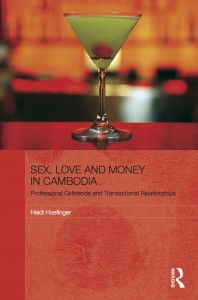






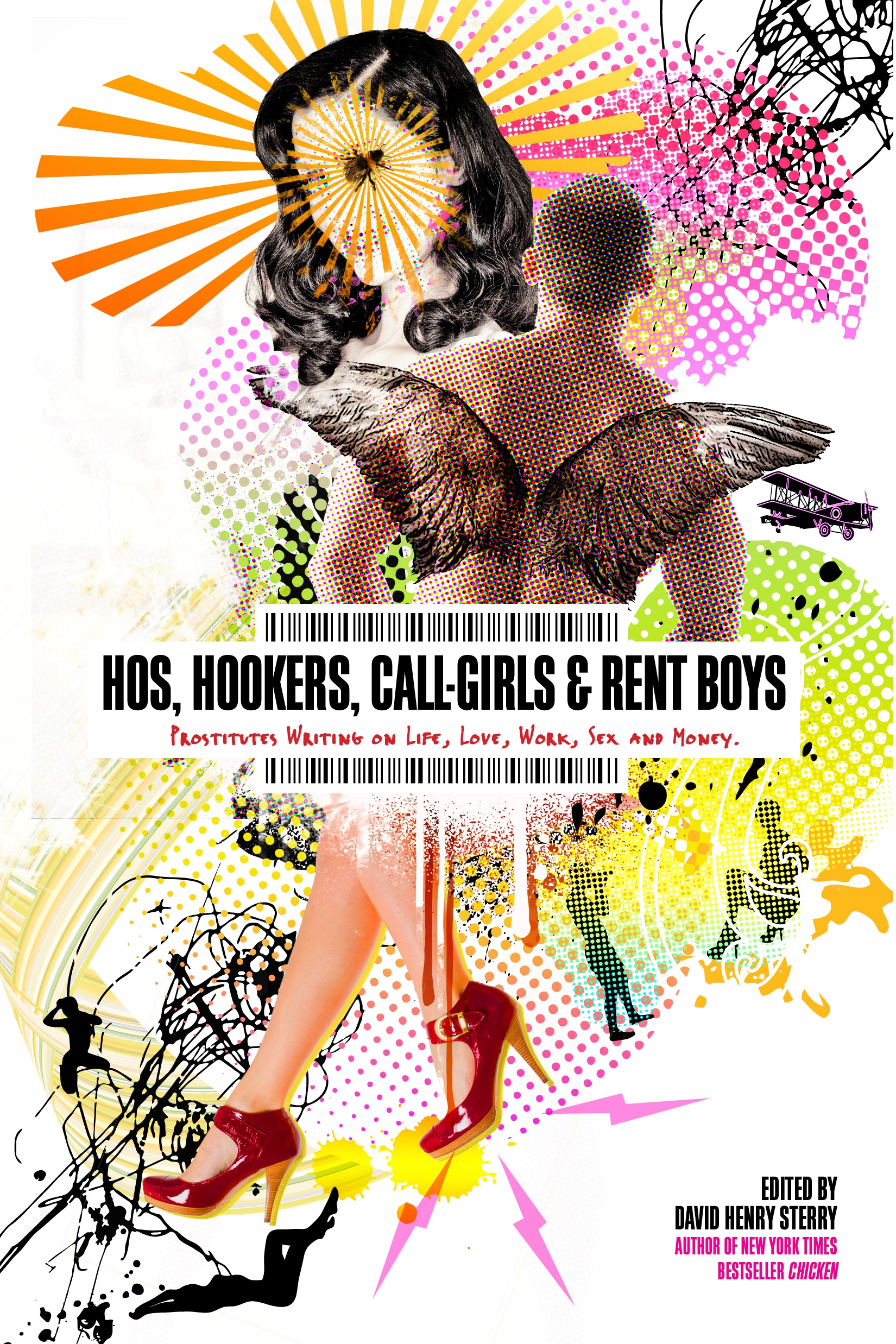
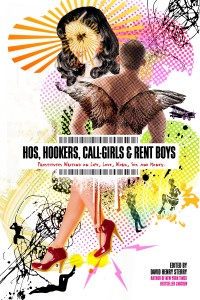



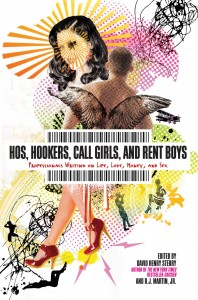

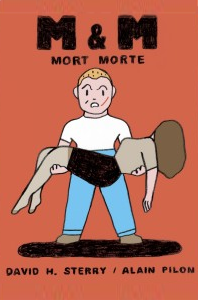







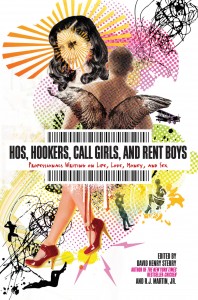

 For years there’s been a raging debate between abolitionists who want to make all exchange of sex for money (whether voluntary or not) illegal; and sex workers who view the willing exchange of sex and money as a work issue, not a moral issue. The abolitionists, many of whom have never had sex for money, often contend that any exchange of sex for money is slavery.
For years there’s been a raging debate between abolitionists who want to make all exchange of sex for money (whether voluntary or not) illegal; and sex workers who view the willing exchange of sex and money as a work issue, not a moral issue. The abolitionists, many of whom have never had sex for money, often contend that any exchange of sex for money is slavery.